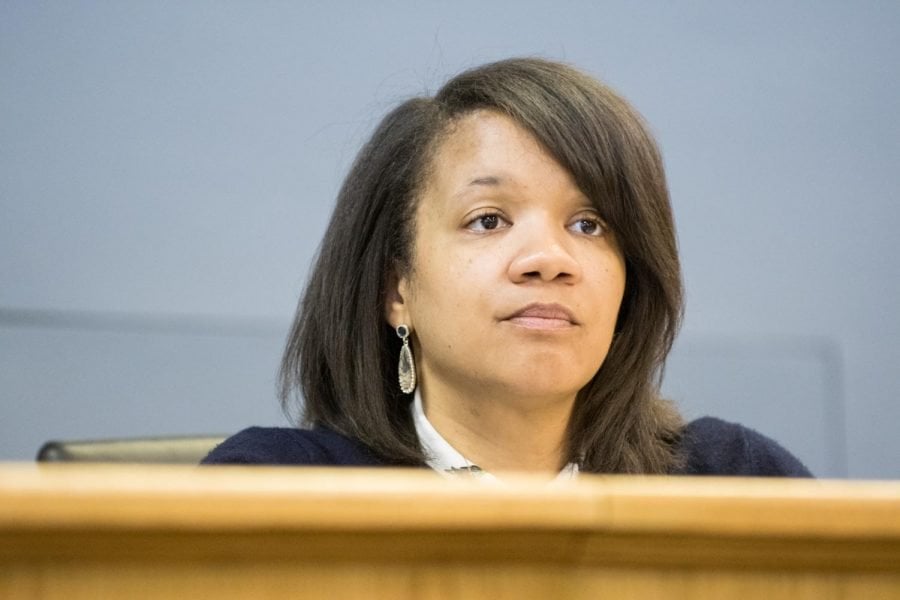Reparations Subcommittee discusses plans for moving forward with their goals, including a new commission
Daily file photo by Colin Boyle
Ald. Robin Rue Simmons (5th). Simmons participated in a conversation surrounding racial healing and reparations on Tuesday.
September 27, 2020
Evanston’s reparations subcommittee discussed potential future remedies for the city’s Black residents, as well as the subcommittee’s future goals, in a Friday meeting.
The subcommittee agreed to develop a new commission and emphasized the importance of including the community in reparations efforts.
Evanston is committed to ensuring community members continue to have ownership of the reparations process, Ald. Robin Rue Simmons (5th) said. Simmons said reparations goals and remedies will continue to be determined and deliberated by Black residents, who will be able to offer their feedback through a public process.
The process, which has been drafted with the help of city leaders, including former Evanston alderman and current circuit judge Lionel Jean-Baptiste and Dino Robinson, the founder of the Shorefront Legacy Center, has already been accepted by the reparations subcommittee and is expected to be finalized by city staff soon. The community will be able to weigh in before the proposed process goes to City Council for approval.
“(Judge Baptiste), along with Dino (Robinson) and some others worked really hard to help us institutionalize a process so that this work can continue independent of any person in the individual’s leadership (or) any particular city council,” Simmons said. “The work needs to continue, really, for generations because the harm has happened over generations.”
A commission, currently called the Stakeholder Reparations Authority, will also be formed under the Reparations Subcommittee with standing seats from historically Black institutions, including faith communities, NAACP, and Shorefront Legacy, as well as at-large membership, which would be on a two year rotation.
Commission members will hear residents’ concerns and make recommendations to the reparations subcommittee. Subcommittee members will continue to make recommendations to City Council.
“This does not exclude anybody from participating in the process, and everybody Black in town is invited to share what you think remedy should be for reparations in Evanston,” Simmons said. “You can come to public meetings and give feedback and share your leadership there, but there will be a limited amount of appointments on this commission.”
Deputy City Manager Kimberly Richardson suggested the reparations subcommittee establish a standing committee in order to accommodate a new commission, as it was drafted as a subset in the original reparations ordinance. She said the issue should be moved to the rules committee. Deputy City Attorney Nicholas Cummings said guidelines for the commission must be formulated.
Ald. Peter Braithwaite (2nd) said it’s important for the subcommittee to make sure the plan is in accordance with city regulations, as well as all of the city’s boards and commissions, so it can be implemented as soon as possible.
“There’s just no clear path, there’s no template for this process for us to follow…We are trying to adhere to the principles and the sacred work of reparations, (but) we also understand that these dollars are coming through our local municipality,” Braithwaite said. “This whole effort is almost surgical in terms of the details in how we shape and carve this thing out…We are the first and hopefully we can make it easier for those to follow.”
Email: juliarichardson2023@u.northwestern.edu
Twitter: @juliaa_grace
Related Stories:
— Reparations subcommittee backs national reparations bills, talks progress updates during town hall
— Reparations subcommittee recounts Evanston’s history of discriminatory policies and practices



